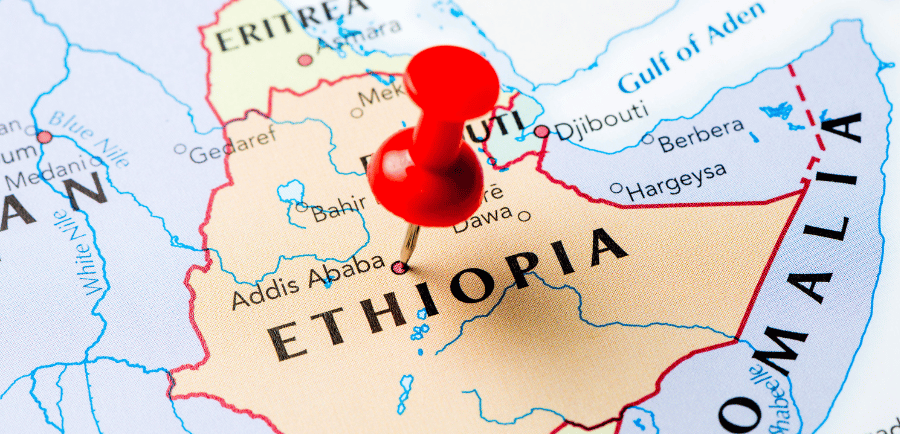What Makes Ethiopian Coffee So Special?
Ethiopia. The name itself conjures images of ancient lands, rich traditions, and, of course, exceptional coffee.
12/30/20242 min read


Ethiopia. The name itself conjures images of ancient lands, rich traditions, and, of course, exceptional coffee. But what is it that truly sets Ethiopian coffee apart from the rest of the world? It's more than just a caffeine kick; it's a sensory experience steeped in history and unique characteristics. Let's dive into what makes Ethiopian coffee so special.
1. The Cradle of Coffee:
First and foremost, Ethiopia is the birthplace of coffee. Legend has it that a goat herder noticed his goats becoming unusually energetic after nibbling on berries from a certain tree. This discovery, sometime around the 9th century, is believed to be the origin of coffee consumption. This deep-rooted history means that coffee isn't just a commodity in Ethiopia; it's woven into the fabric of their culture and daily life.
2. Unparalleled Biodiversity:
Ethiopia boasts an incredible diversity of coffee varieties, many of which are indigenous and found nowhere else in the world. This vast genetic pool contributes to the complex and varied flavor profiles found in Ethiopian coffee. From wild, forest-grown beans to carefully cultivated varieties, the range is astounding. It's estimated that Ethiopia holds over 90% of the genetic diversity of Arabica coffee!
3. Unique Growing Conditions:
The high altitudes, fertile soils, and ideal climate of Ethiopia provide the perfect environment for growing exceptional coffee. The mountainous regions, particularly in the south, offer optimal conditions for slow maturation of the coffee cherries, leading to more complex and concentrated flavors.
4. Traditional Processing Methods:
Ethiopia employs both washed and natural processing methods, each contributing unique characteristics to the final cup.
Natural (Dry) Processing: Cherries are dried in the sun, allowing the flavors of the fruit to infuse the bean. This often results in fruity, winey, and sweet notes.
Washed (Wet) Processing: The fruit pulp is removed before drying, resulting in a cleaner, brighter cup with floral and citrusy notes.
These traditional methods, passed down through generations, contribute to the distinctive flavors of Ethiopian coffee.
5. A Ceremony of Coffee:
In Ethiopia, coffee is more than just a drink; it's a ceremony. The traditional "Jebena" ceremony involves roasting green beans over charcoal, grinding them by hand, and brewing the coffee in a traditional clay pot called a jebena. This ritual, often shared with family and friends, is a symbol of hospitality and respect.
Flavor Profiles That Captivate:
Ethiopian coffees are renowned for their diverse and captivating flavor profiles. You might encounter:
Floral notes: Jasmine, bergamot, and honeysuckle
Fruity notes: Lemon, blueberry, and strawberry
Winey and spicy notes: Hints of black tea and bergamot
These complex flavors, combined with varying levels of acidity and body, create a truly unique and memorable coffee experience.
Exploring Ethiopian Coffee:
If you're looking to explore the world of Ethiopian coffee, here are a few regions to look out for:
Yirgacheffe: Known for its bright acidity, floral aromas, and citrusy notes.
Sidamo: Offers a balanced cup with medium body, floral and fruity notes, and a smooth finish.
Harrar: Distinct for its bold, fruity flavors, often with hints of dark chocolate and berries.
In Conclusion:
From its legendary origins to its diverse flavors and rich traditions, Ethiopian coffee holds a special place in the hearts of coffee lovers worldwide. It's a testament to the power of nature, tradition, and the enduring appeal of a truly exceptional cup of coffee. So, the next time you savor a cup of Ethiopian coffee, take a moment to appreciate the journey it has taken, from the birthplace of coffee to your cup.

